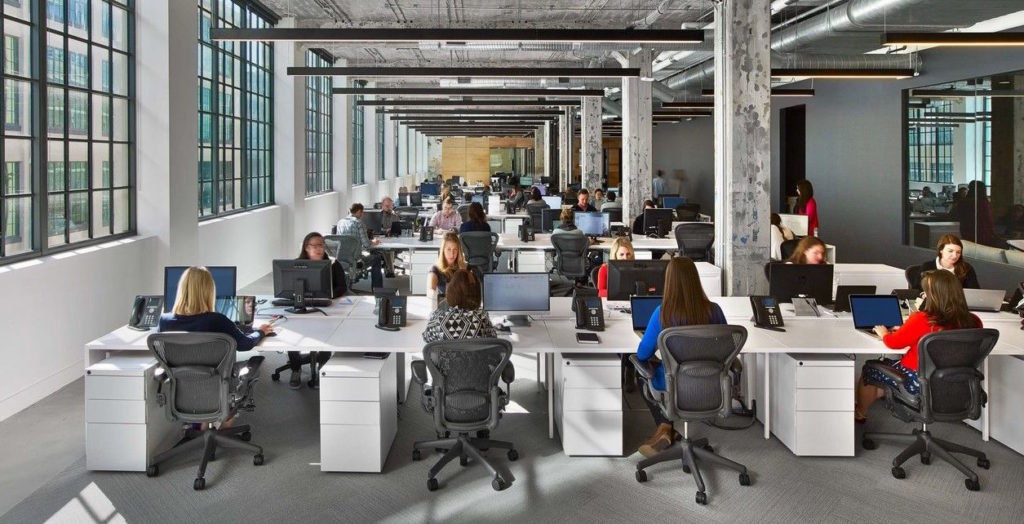Workers want hybrid model post pandemic – flexibility to work from home and office

While working from home is being hyped as the way of the future after the Covid-induced lockdowns of 2020, new research has revealed most Australians prefer working from the workplace at least some of the time.
Australian workers between the ages of 18 and 65 were surveyed by Mainstreet Insights to see how they’re faring during the second year of living in a world changed by Covid.
Australian workers reported that since Covid restrictions eased, they’ve benefited from returning to the workplace, with 70 per cent of workers saying they find their most meaningful and regular social connection there.
Mainstreet Insights co-founder Dr Lindsay McMillan OAM said that’s a significant change from similar surveys conducted pre-Covid.
“In our 2019 Workplace Loneliness Report, 40 per cent of Australians reported feeling lonely at work,” Dr McMillan said.
“But post-Covid, we can see a shift in that societal sentiment, with almost three quarters (70 per cent) of workers saying the workplace is where they experience their most meaningful and regular social connections and feel the strongest sense of community.
“It was a surprise to see that despite their familiarity with and comfort using technology, Gen Z workers (aged between 18 and 26 years old) have the strongest desire for human interaction at work.
“Some 76 per cent of Gen Z workers report feeling the most meaningful social connection and community at work, compared to 68 per cent of Gen X and 63 per cent of Baby Boomer workers.”
Gen X workers are aged between 41 and 56, and Baby Boomer workers are aged between 57 and 65 years old.
The household is the second most (54 per cent) important source of social connection for Australian workers, followed by the local neighbourhood (32 per cent) and sporting activities (29 per cent).
When it comes to which location Australian workers prefer to do their jobs from, the data is clear: most do not want to work from home all the time.
“Three in five (60 per cent) Australian workers want a hybrid model of work, which means having flexibility to work between home and the workplace,” Dr McMillan said.

“Despite futurists and some major companies spruiking that we’re living in the age of virtual offices and remote working, only 15 per cent of people want to work from home all the time, and most Australian workers (63 per cent) have already returned to the workplace full-time or most of the time.
“The multiple lockdowns, the isolation from the rest of the world and the need to be considerate and thoughtful members of a community has undoubtedly brought us closer together.”
Mainstreet Insights co-found Mark McCrindle said younger generations of workers seem to be suffering the most.
“More than half of Gen Zs workers (58 per cent) reported experiencing an increase in mental health concerns,” Mr McCrindle said.
“This highlights that while young Australians have been the least vulnerable to the impacts of Covid, they have been the most impacted by the mental health and social consequences of the pandemic.”
Almost half (48 per cent) of Gen Y workers reported experiencing an increase in mental health concerns from Covid, compared to 36 per cent of Gen X workers and 28 per cent of Baby Boomer workers.
Expectations around worker wellbeing has developed, with most Australian workers wanting a leader that proactively makes them feel well taken care of (54 per cent) and prioritises their mental health and wellbeing (51 per cent).
“To some, work is simply a job, but to many Australians it’s a lifeline to social interaction, purpose and a place of belonging,” Mr McCrindle said.
“Since Covid, a third (32 per cent) of Australian workers reported suffering reduced quality of sleep, which is unsurprising considering as a society we’re having to live with less structure and more uncertainty.
“More than two thirds (68 per cent) of Australian workers said they’ve suffered financially from Covid, through a reduced or loss of income.
“Again, the younger generations have felt that most, with almost half Gen Z (49 per cent) and Gen Y (48 per cent) workers reporting increased stress around their finances, compared to 36 per cent of Gen X and 43 per cent of Baby Boomer workers.”
A quarter (25 per cent) of Australian workers surveyed said the pandemic led them to increase their caffeine and alcohol consumption, while 21 per cent said they increased the amount of time they spent exercising.
For a copy of the current research or the Workplace Loneliness Report, visit https://mainstreetinsights.com.au/
Short URL: https://indiandownunder.com.au/?p=16545
